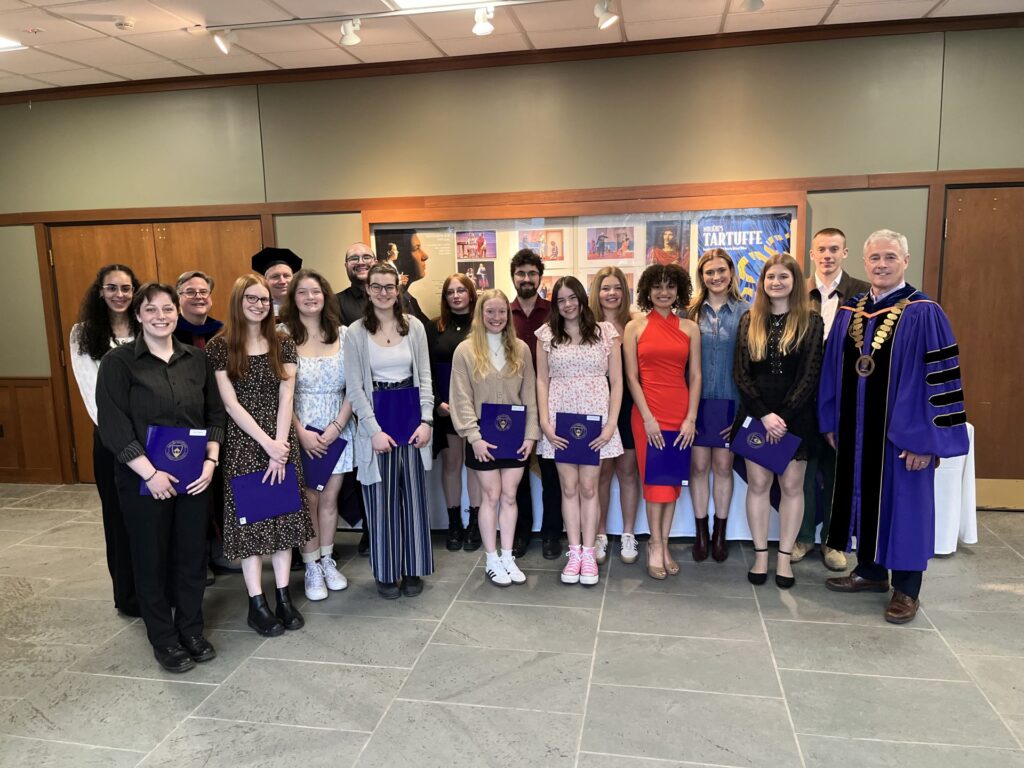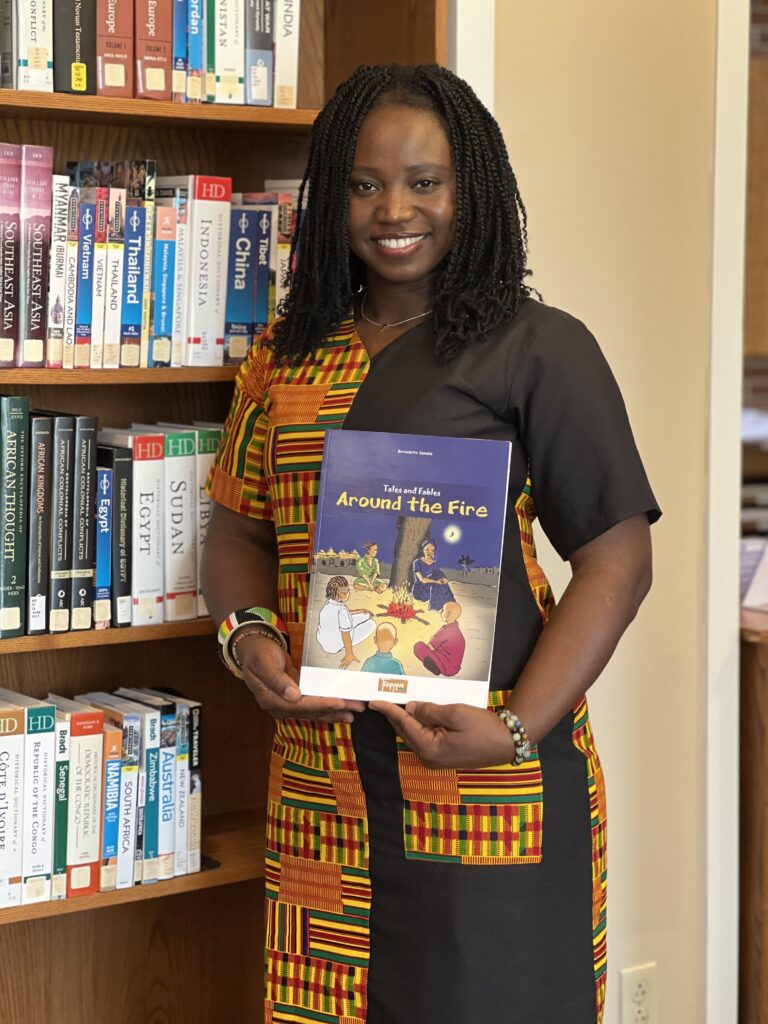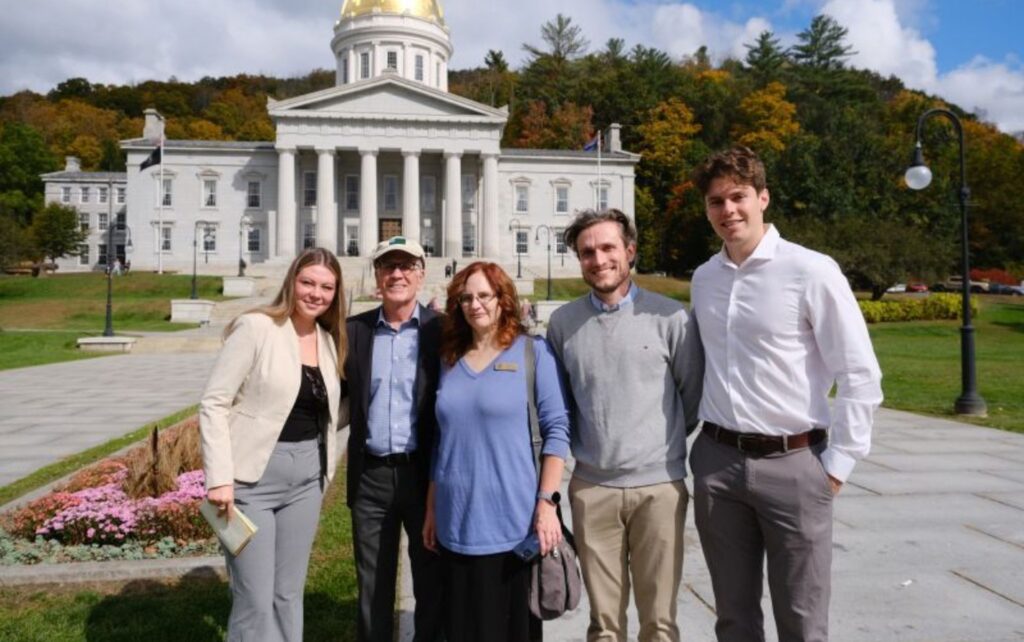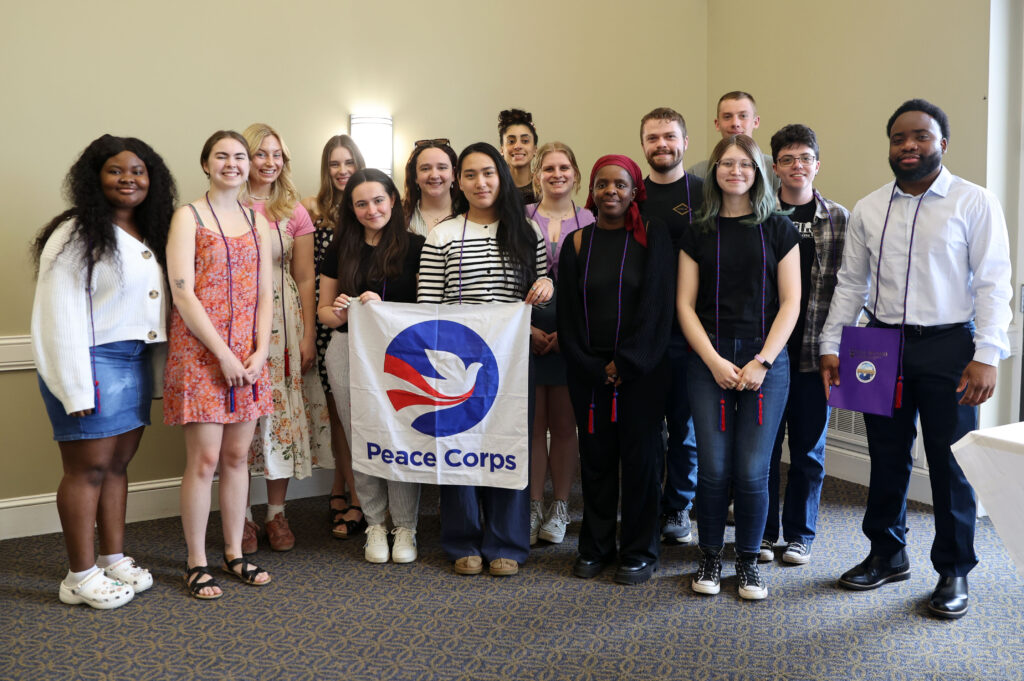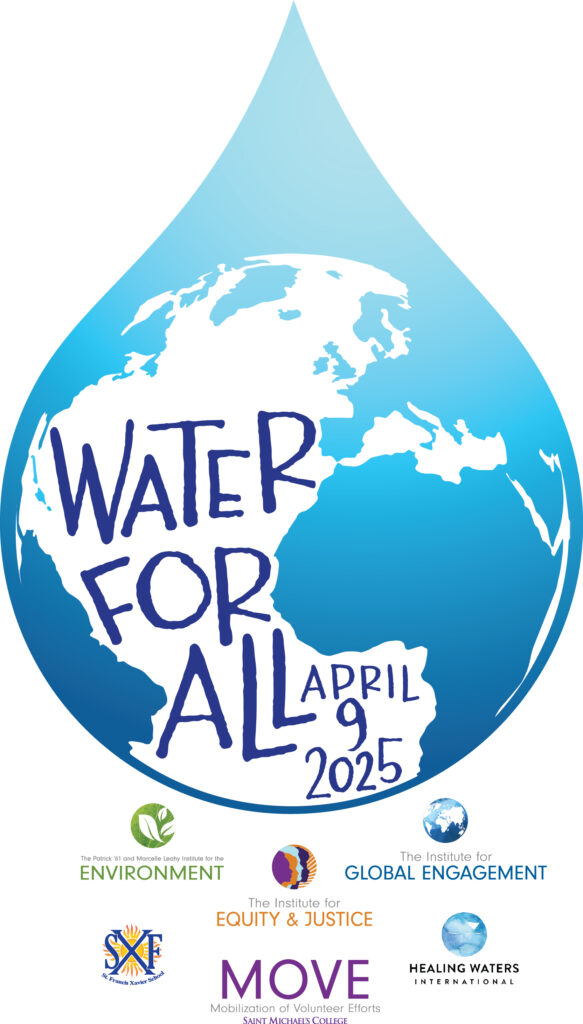Faculty experts share insights with community on Ukraine crisis
 A Saint Michael’s community Zoom conversation about the crisis in Ukraine Tuesday evening sponsored by the College’s new Institute for Global Engagement illustrated the important practical utility of such a Center to help people understand and process world issues affecting their lives.
A Saint Michael’s community Zoom conversation about the crisis in Ukraine Tuesday evening sponsored by the College’s new Institute for Global Engagement illustrated the important practical utility of such a Center to help people understand and process world issues affecting their lives.
President Lorraine Sterritt joined scores of students, college leaders, faculty and staff tuning in by Zoom to hear a panel of Saint Michael’s faculty from Political Science and International Relations, who took turns describing important insights, nuances and undercurrents that might escape Americans who only superficially are following news about Ukraine. The contributing faculty experts were Professors Shefali Misra, Michael Bosia, Daniel Simmons, Trish Siplon and the event’s host, Jeffrey Ayres, director of the Institute for Global Engagement.
To start the 7 p.m. event, Ayres said that the Russian invasion of Ukraine last week made him think back to his student days in the mid 1980s when a song by the artist Sting, “Russians,” addressed world dynamics of those Soviet Cold War times, which sadly seem to be repeating themselves today with Putin and renewed heightened nuclear fears. The song contains the poignant repeated refrain “I hope the Russians love their children too” as its basis for common human hope.
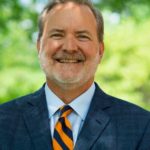
Jeffrey Ayres
Ayres noted that when the Berlin Wall fell decades ago signaling a new era, some felt “liberalism had triumphed and there would be no more conflicts or significant debates on the trajectory of the world order,” and relative international optimism mostly prevailed in the 1990s. Yet, Ayres said, now he is looking at late Cold War era books from his younger days whose titles feel all too relevant again, much as with the Sting song.
Professor Misra offered a historical sketch of Ukraine in the 20th Century as part of the Russian empire – from its brief independence from the post- World War I Treaty of Brest Litovsk until 1922 when it became part of the Russian empire with the rise of the Soviet Union, staying that until 1991. The Soviet occupiers were “very much steeped in Russian nationalism” across that empire. Ukraine then was victim in 1932-33 of the worst kind of Stalinist atrocities in attempts to collectivize agriculture, she said — rich Ukraine farmers resisted mightily and ended up in concentration camps. The wider population paid in millions of lives lost to resulting famine. She told how, when the Soviet Union broke up, Ukraine was the third largest nuclear weapons power but through perhaps “naiveté and trust in good will” by the U.S. and Russia, Ukraine gave them up based on guarantees from both the U.S. and Russia to never invade.
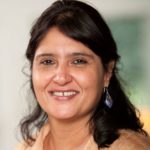
Shefali Misra
Generations of gross Soviet mismanagement meant Russia after 1991 became a study in contrast with Poland, which got on its feet fast as a showcase economy while Russia went into a depression. She told of Russia’s invasions of Georgia and Crimea in more recent decades, and how Ukraine strongly provoked Putin by expressing its strong desire to join the European Union. Misra said that while she felt the EU played a strong role in supporting Ukraine and former Soviet satellite nations on one hand, they did not stand by Ukraine when attacked and invaded. “Once you are a participant you have some responsibility,” she said. Misra said it seems to her that, for the West, “when it will hurt us we will not make any sacrifice,” so the West bears some responsibility for the present situation in her view.

Michael Bosia
Mike Bosia explained Putin’s personal and career background and how it affects his moves since he is “so fully indoctrinated with Russianness,” emphasizing assimilation of all people in Russification – this built on a notion that the Soviet Union was the chief victim of the Nazis, along with strong anti-Semitism under the Soviets. Bosia told about whole populations moving forcefully in and out of regions during the Soviet era, particularly around the Black Sea.
After an interruption in the Zoom program, Daniel Simmons weighed in, asking, “What’s the best thing we can do?” He suggested it might be “recognizing that the peace and prosperity we’ve enjoyed since World War II is an anomaly in human history – a lot of us have grown up in an environment where we don’t know anything else , and that’s dangerous…. you don’t know how much you have to lose.” He said it means Americans need to shore up democracy at home because otherwise democracy is in peril here and everywhere. This requires significant action and sacrifice by Americans, right down to things like school board votes in the Vermont Town Meetings that were the same Tuesday as this Zoom session.

Daniel Simmons
“It is caring about these local issues and being active and involved — these are the most immediate actions we can take to protect our democracy,” he said.
A period of questions followed. Misra reflected on the wisdom of maintaining strategic ambiguity as with the U.S. vs China in its not being clear on how it might respond on actions toward Taiwan instead of signaling exactly what the U.S. will do or not do in a situation as with Ukraine. This has been seemingly the more effective approach for the U.S. in the China-Taiwan situation compared with putting all the cards on the table right off, she suggested.
Bosia reminded how a treaty between the UK and China on Hong Kong was to be for 50 years, and already any early resolve to hold firmly to those terms by the UK has been breaking down long before that, which Putin likely sees as a motivator for his current aggressive moves.
President Sterritt asked if the faculty experts felt Putin strategically miscalculated the first week of the attack. Misra said she sees general agreement “that things have not gone as well as he thought, but nobody is thinking it is over. He is going to keep ratcheting it up for sure.” Bosia spoke of the vital importance for Russia and Putin of maintaining a massive supply line against the Black Sea. Strategically, Bosia sees a top goal for Putin to be creating new provinces under Russian control from Moldova to the Donbass region, much as has happened with Crimea, with a puppet government in Kyiv that will sign off on such changes.
Some of the question segment dealt with racism in the refugee crisis now unfolding from Ukraine compared with other earlier global refugee crises. Bosia spoke of a British culture of “anti-Slav-ism” at work.

Trish Siplon
Trish Siplon told about racism at border crossings now already, with people of color from Ukraine literally sent to the back of the line. “This is not new, it happens globally,” she said. Siplon also spoke of the importance of controlling water supply in Crimea and elsewhere in this conflict, a topic her Saint Michael’s class on water-related politics has been discussing along with other key infrastructure issues that might not be as covered in the media in a manner reflecting their true importance
 One of the stronger emotional moments of the Zoom session came near the end when a Saint Michael’s student-athlete from Lithuania, Purple Knight hockey player Paulius Macijauskas, spoke passionately from personal experience of his family in dealing with Russia. “My father and grandparents have been so affected by what Russian policy has done to us in Lithuania, so this is hard to see now,” Macijauskas said.
One of the stronger emotional moments of the Zoom session came near the end when a Saint Michael’s student-athlete from Lithuania, Purple Knight hockey player Paulius Macijauskas, spoke passionately from personal experience of his family in dealing with Russia. “My father and grandparents have been so affected by what Russian policy has done to us in Lithuania, so this is hard to see now,” Macijauskas said.
The panelists emphasized their sympathy for his concerns and told him generally that they did not feel Putin would risk invading any of the Baltic former Soviet satellite countries such as Lithuania given NATO obligations that would make it untenable for Putin strategically. Rather, Simmons said, Putin might focus on infiltration policy and manipulations of the nations’ Russian populations, along with psychological operations to cause disorder, much as Russia tries to do even in the U.S.
*
Following is the statement that Professor Ayres in his role with the Institute for Global Engagement sent to the College community on email earlier in the week about the situation in Ukraine:
Dear Campus Community,
The Institute for Global Engagement at Saint Michael’s College is devoted to the premise that developing empathy for and an understanding of other cultures and countries, and building connections across borders and between diverse peoples, constitute central prerequisites for a more cooperative and harmonious world order. That is why all of us who have worked to develop and support our new Center on campus are dismayed and shocked by Russia’s unprovoked attack on Ukraine and its people. International norms of territorial integrity, sovereignty and non-intervention are at stake, as are most acutely the lives of millions of Ukrainians who face an uncertain future of dislocation, displacement and even death.
We unequivocally condemn Russia’s attack, share in the international community’s outrage, and stand in support of the Ukrainian people in their desire for democracy, peace and security. Russia’s violent attack on Ukraine stands in direct contrast to our belief that only international cooperation and understanding will provide the tools necessary for responding effectively to the wide array of pressing global problems facing the international community.
It is the mission of the Institute for Global Engagement to serve as the collaborative hub of international activity at Saint Michael’s College, promoting global learning and literacy, deepening inter-cultural competency and inclusion, and supporting opportunities for global engagement for students, faculty, staff, alumni and local community members. We remain committed to advocating on behalf of international students and scholars, promoting programs that advance international engagement and cooperation and supporting opportunities to promote respect and appreciation of the diversity of our human community.
Jeffrey Ayres, Ph.D.
Director, Institute for Global Engagement
Professor and Chair
Department of Political Science and International Relations
